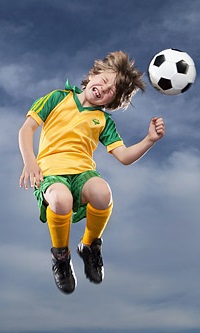Head knock report released
 The Senate has issued a report from its inquiry into concussions and repeated head trauma in sports.
The Senate has issued a report from its inquiry into concussions and repeated head trauma in sports.
The key recommendations from the report aim to bring about substantial changes in the way Australia approaches sports-related head injuries.
Among the recommendations, the report calls for the establishment of a National Sports Injury Database.
This step could enhance the availability of crucial sports injury data, especially at the community level. It would require professional sporting codes to begin collecting data on concussions and sub-concussive events, sharing this vital information with the proposed National Sports Injury Database.
The report calls for the creation of independent research pathways to facilitate well-structured scientific investigations into the effects of concussion and repeated head trauma. Experts say Australia needs prospective, longitudinal clinicopathological studies to identify clinical features, progression, and interventions.
The report touches on the issue of brain donation for scientific research, which could provide invaluable insights into brain health and disease, including conditions like Chronic Traumatic Encephalopathy (CTE).
The Senate report additionally urges the Federal Government to consider a consolidated funding framework for research on sport-related concussion and repeated head trauma. Collaboration with state governments, sporting organisations, universities, and scientific research bodies is recommended.
Furthermore, the report highlights the critical need for increased community awareness and education regarding concussions. This initiative should equip individuals with the ability to recognise the signs and symptoms of concussion, respond appropriately, and understand the short- and long-term risks associated with head trauma.
The Senate report strongly encourages national sporting organisations to explore rule modifications that can prevent and reduce the impact of concussion, particularly among children and adolescents.
It suggests return-to-play protocols should be adaptable across all sports, especially for children and those with a history of repeated head trauma.
The report also calls for a national strategy to reduce the incidence and impacts of concussion, including binding return-to-play protocols. This strategy would consider existing government bodies for monitoring and enforcement in Australian sports.
Finally, the report emphasises the need for support, both financial and otherwise, for current and former players affected by concussions.
It also encourages discussions with state and territory governments to address the exclusion of professional sportspeople from various workers’ compensation schemes.
The full report is accessible here.








 Print
Print